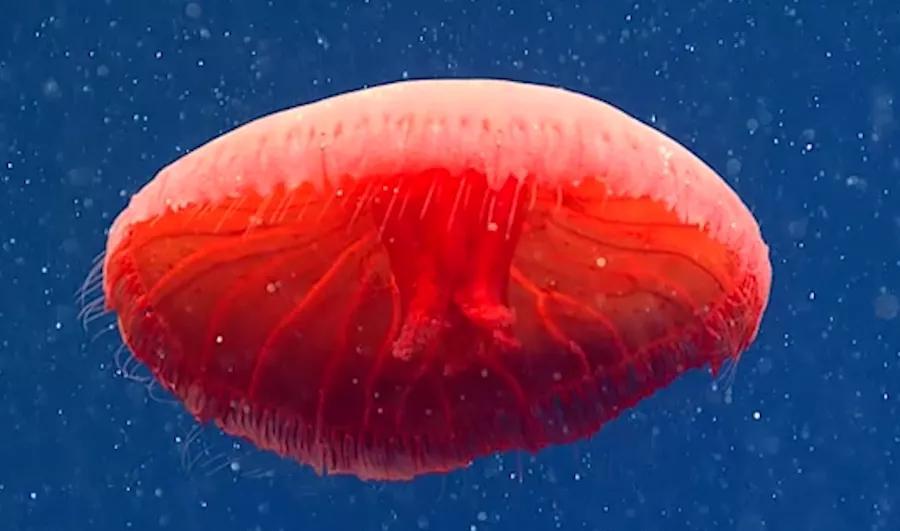Hi, the divers are all concerned with IFdiving!
With more than 80 percent of the ocean untapped, scientists estimate that about 91 percent of marine species have yet to be discovered and classified.

Image source: NOAA
Scientists at the National Oceanic and Atmospheric Administration (NOAA) have discovered an unprecedented "blood-red jellyfish" in water about 2,300 feet (about 700 meters) off the coast of Newport, Rhode Island.
The discovery comes from the National Oceanic and Atmospheric Administration's North Atlantic Stepping Stones Exploration Project.
This stunning red jellyfish was spotted when the remote-controlled submersible Deep Discoverer dived to a depth of about 3,000 feet (about 900 meters). The researchers filmed the entire dive and captured the new species on footage.
Scientists believe the jellyfish is the genus Poralia, which currently has only one identified member, Poralia rufescens. Similar to the recently discovered jellyfish, the species is red, but is more bell-shaped and has more than 30 long tentacles.
This summer, the National Oceanic and Atmospheric Administration conducted as many as 25 explorations in the deep ocean at 800 to 13,000 feet (about 240 to 3,960 meters) using remotely operated submersibles, with the goal of helping scientists better understand deep-water habitats, including biodiversity and distribution.
Quinn Girasek, an intern with the National Oceanic and Atmospheric Administration and from Juniata College in Pennsylvania, said, "In exploring the deep sea, we saw a variety of marine life, such as ctenophores, spinys, crustaceans, and ray-finned fish. In addition, we saw several unspecific families as well as some potential new species. ”
For Girasek, though, the "blood-red jellyfish" is the most appealing.
"I can't wait to learn more about these marine life," he said. ”